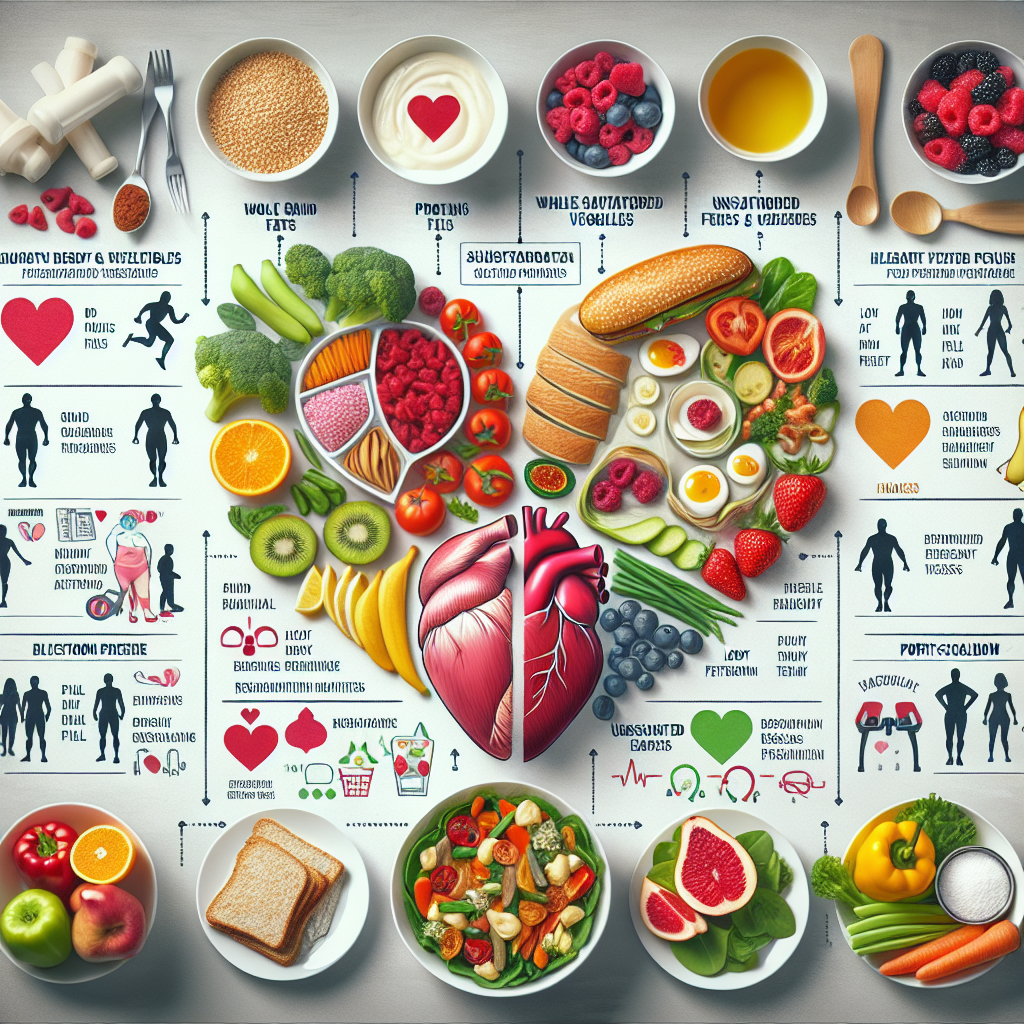The successful recovery of cardiac surgery patients is a multifaceted process that extends well beyond the operating room. Among the critical elements of post-surgical care, nutrition plays a pivotal role in facilitating wound healing, preventing infections, and strengthening the heart muscle. A tailored nutritional approach can significantly affect the speed and quality of recovery, as well as help in the long-term management of cardiovascular health.
The Foundation of Cardiac Nutrition
Post-surgical nutrition should provide the body with an optimal mix of macronutrients and micronutrients to support healing and overall health. Protein is essential for tissue repair and immune function, making it a cornerstone of the post-surgical diet. Carbohydrates, while monitored for quality, provide the necessary energy for the body’s recovery processes. Fats, particularly omega-3 fatty acids, can help reduce inflammation and support heart health.
Micronutrients, including vitamins and minerals such as vitamin C, vitamin A, zinc, and selenium, play crucial roles in wound healing and immune defense. Adequate hydration is also vital to maintain blood volume and facilitate the transportation of nutrients and removal of wastes.
For more comprehensive information on cardiovascular health, visit Avix Health’s Cardiovascular Health.
Nutritional Strategies for Recovery
Caloric Intake
Caloric needs often increase after surgery due to the body’s heightened metabolic demands. However, monitoring caloric intake is crucial to avoid excessive weight gain, which can place additional strain on the heart. A registered dietitian can help tailor a diet plan to meet the individual caloric needs of patients, taking into account their level of physical activity and metabolic requirements.
Sodium and Fluid Management
Managing sodium intake is particularly important for cardiac patients to prevent fluid retention and high blood pressure. The American Heart Association recommends no more than 2,300 milligrams a day, moving toward an ideal limit of no more than 1,500 mg per day for most adults. Fluid intake may also need to be monitored in patients with heart failure to prevent fluid overload.
Heart-Healthy Foods
A heart-healthy diet includes a variety of fruits, vegetables, whole grains, lean protein, and healthy fats. This diet supports heart health by providing essential nutrients, fiber, and antioxidants. Foods rich in omega-3 fatty acids, such as salmon and flaxseeds, are particularly beneficial for their anti-inflammatory properties.
For further reading, the article on Combating Metabolic Syndrome for Cardiovascular Health offers valuable insight into managing risk factors through diet.
Supplements and Medications
Some patients may require supplements to correct nutrient deficiencies or to provide additional support for healing and heart function. However, it’s crucial to manage these supplements carefully, as they can interact with medications commonly prescribed to cardiac patients. Always consult a healthcare provider before starting any new supplement.
For guidance on medication and supplements, refer to Avix Health’s Medication & Supplements.
Special Considerations
Diabetes Management
For diabetic patients, controlling blood sugar levels is critical following cardiac surgery. Uncontrolled glucose can impair wound healing and increase the risk of infections. A diet that carefully balances carbohydrates and monitors glycemic load is essential for these patients.
Weight Management
Obesity is a significant risk factor for cardiovascular disease. Post-surgery, weight management becomes a key component of recovery and long-term health. A diet that promotes a gradual weight loss, if necessary, can improve cardiac function and reduce the risk of future cardiac events.
Allergies and Intolerances
Individual food allergies and intolerances must be considered when planning a post-surgical diet to avoid adverse reactions that could compromise recovery.
External Resources for Further Information
- American Heart Association provides resources on heart-healthy living, including dietary recommendations.
- Academy of Nutrition and Dietetics offers nutrition guidance and can help locate registered dietitians.
- National Institutes of Health – Office of Dietary Supplements provides information on nutrients essential for recovery and overall health.
- Diabetes UK offers detailed dietary advice for people with diabetes, particularly important in post-surgical cardiac care.
Reinforcing Recovery Through Lifestyle
Nutrition is just one aspect of the recovery process. Ensuring adequate rest, managing stress, and gradually increasing physical activity as advised by healthcare professionals are equally important. For insights into the psychological aspects of recovery, the article on Psychological Aspects of Heart Disease Recovery is a valuable resource.
The Long-Term Perspective
The habits established in the post-surgical period can set the foundation for long-term heart health. Adopting a heart-healthy lifestyle that includes nutritious eating, regular physical activity, and stress management can help prevent further cardiac issues and enhance quality of life.
In conclusion, nutrition is a critical component of post-surgical cardiac care. A balanced, heart-healthy diet tailored to an individual’s specific needs can accelerate recovery, support cardiac function, and contribute to long-term cardiovascular health. With the guidance of healthcare professionals and reliable resources, patients can navigate their recovery journey successfully and embrace a lifestyle that promotes a strong and healthy heart.



